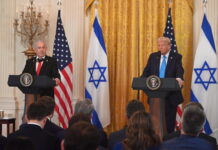The latest Turkish leaked bombshell concerns a secretly taped audio recording, uploaded to YouTube, of a top secret conversation about Syria between Foreign Minister Mr Ahmet Davutoğlu, and senior staff from security and intelligence departments including Head of Intelligence, H. Fidan, writes Abdelbari Atwan.
In the taped conversation, the men discuss possible military interventions by Turkey to secure the tomb of Suleyman Shah, a site of historical significance to Turks which is fifteen miles inside the Syrian border. Under an agreement signed with France in 1921 following the demise of the Ottoman empire, the site has always been guarded by Turkish troops. Islamic extremists have threatened the security of the site and warned Turkey to remove its troops from the enclave and take down its flag.
Among strategic methods the men discussed was fabricate a pretext for a military intervention in Syria. One voice, allegedly the head of intelligence, said that he could send a small team into Syria to launch missile strikes on Turkey. Turkey would then “retaliate” and try to engage international back-up.
The situation is no less dangerous, in our view, than the run-up to the allied attack on Iraq in 2003 which also used a pretext – weapons of mass destruction – to justify the invasion and occupation of Iraq.
Turkish officials have denied the authenticity of the recordings and denounced the leak as a “serious crime.”
Syria catastrophe
The Syrian regime is responsible for up to 250,000 deaths and the displacement of more than five million of its children through catastrophic mistakes. Even Bashar al-Assad has admitted that his regime bears “partial responsibility” for what has happened in Syria; for all the killing and destruction.
Subscribe to our newsletter and stay updated on the latest news and updates from around the Muslim world!
But foreign meddling has also played a role in fanning the flames of this catastrophic conflict. In particular the Turkey-Saudi axis which has put all its weight behind the hostilities and its proxy organizations in Syria.
Last year, Silvio Berlusconi, the former Italian Prime Minister, told an Italian news agency that Nato’s intervention in Libya was orchestrated by the then French President, Nicolas Sarkozy. According to Berlusconi, Sarkozy feared loss of French influence and access to Libya’s rich oil and natural gas reserves, after he visited Tripoli and saw posters of Gaddafi embracing Berlusconi.
Regarding Syria, Berlusconi posited that this revolution is not unrelated to the discovery of large gas reserves off Syria’s Mediterranean coast to which Europe would like access. A proposed pipeline from Qatar to Turkey would also need to run through Syria.
We must, then, question the role of Turkey and other countries in fomenting the crisis in Syria and the militarization of the uprising.
Suspicions
The Syria people’s initial, peaceful, legitimate demands for democratic change and social justice morphed into the current nightmare of destruction, fragmentation of territorial integrity, death and displacement.
If Turkish intelligence speaks of fabricating a Syrian rocket attack on Turkey in order to justify a military attack, why not assume that this same intelligence was with the US and Britain?
The Syrian civil war and sectarian conflict may have the end result of bringing the regime to its knees but unless the interests of the Syrian people are all that is being served here, why should Syrian blood pay for the furtherance of nefarious foreign plots?
We opposed the Syrian regime for 15 years, and we have criticized and continue to criticize many of its domestic and foreign policies, but our main concern – as it always has been – is to stand in the trench with the Syrian nation against any scheme to destroy this country, which is our country; to kill her sons, who are our sons… this stance is in recognition of the blood of all the martyrs who have fallen in defence of the Islamic and Arab nation, the Umma.
The Turkish people are right to regard their rulers with suspicion, and accuse them of fomenting a military conflict with their neighbour. Blocking Twitter and YouTube – as the Turkish government has now done – will not achieve its purposes because times have changed, and social media platforms are multiplying, making state control almost impossible. The tape which was blocked on YouTube re-appeared a short time later on Vimeo and in Dropbox.
The current spate of leaks regarding foreign interference in the Syrian conflict is only the tip of the iceberg. Governments need to realise that the crime is not the act of leaking, but the content of the leaks themselves.






















